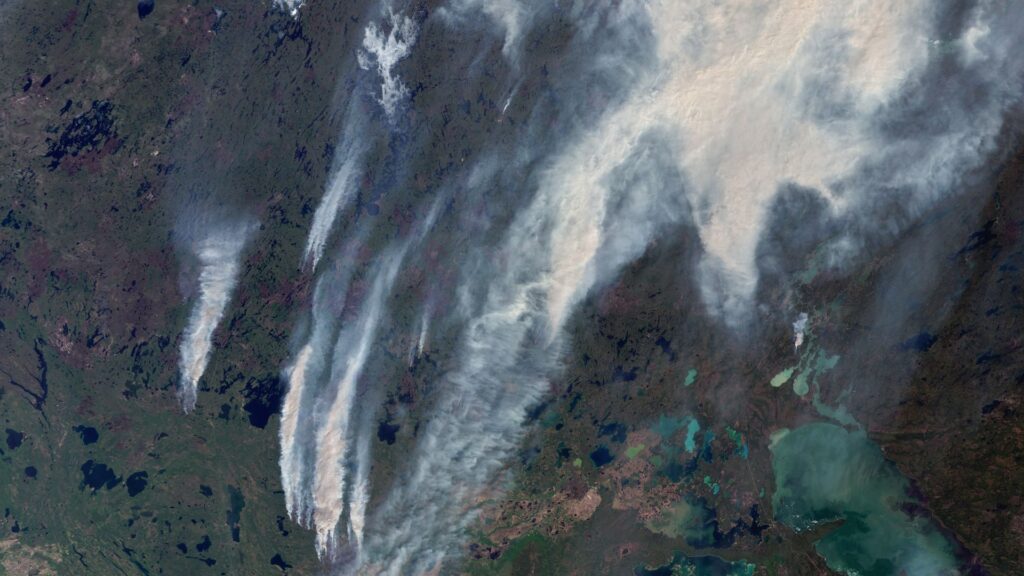Wildfire smoke is pouring into the heartland of the United States as fast-spreading, intense fires burn in western and central Canada, according to officials. The top provincial officials, known as premiers, in Manitoba and Saskatchewan have officially declared states of emergency.
Saskatchewan Premier Scott Moe announced Thursday that the government of Saskatchewan has officially declared a state of emergency for the entire province because of severe wildfires, especially in the northern region.
The emergency applies to all of Saskatchewan, not just the areas directly affected by the fires. This gives the government extra powers to respond more quickly, to bring in additional equipment and to retain the help of the military.
“We do need some rainfall, and we need that sooner rather than later,” Saskatchewan Premier Scott Moe said during a news conference Thursday. “In light of that not being in the forecast, we’re certainly putting in place every measure possible to prepare our province and prepare our communities for the days ahead.”
Manitoba Premier Wab Kinew said Wednesday that about 17,000 people from the city of Flin Flon, Pimicikamak Cree Nation, Pukatawagan Cree Nation, and the Northern Affairs Community Cross Lake are under evacuation orders and that the majority of the evacuees would head to Winnipeg.
“This is the largest evacuation Manitoba will have seen in most people’s living memory,” Kinew said during a news conference Wednesday.
Both states of emergency are set to remain in effect for 30 days.
Smoke crosses into US, threatens air quality
The smoke is expected to impact air quality for millions of Americans as it pours across the Canadian border and into the United States, according to AccuWeather. Meteorologists are saying the smoke is expected to lower air quality in several states over the coming days.
According to AccuWeather, the cities expected to be the most heavily impacted are:
Fargo, N.D.
Minneapolis and Duluth, Minn.
Green Bay and Milwaukee, Wisc.
Chicago, Ill.
Detroit, Mich.
Indianapolis, Ind.
People in these cities could see and feel the effects of Canadian wildfire smoke, including hazy skies and poor air quality, over the next few days. Those with breathing problems, such as asthma, the elderly, young children and pregnant women, should take extra precautions.


